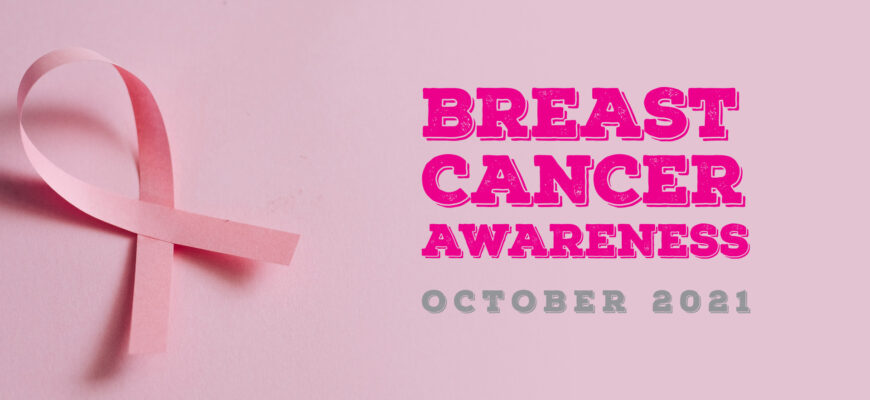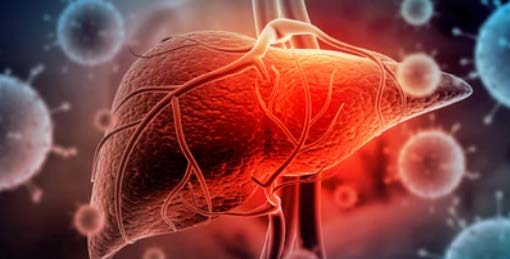Breast Cancer Awareness

Cancer is a broad term for a class of diseases characterized by abnormal cells that grow and invade healthy cells in the body. Breast cancer starts in the cells of the breast as a group of cancer cells that can then invade surrounding tissues or spread (metastasize) to other areas of the body.
Cancer begins in the cells which are the basic building blocks that make up tissue. Tissue is found in the breast and other parts of the body. Sometimes, the process of cell growth goes wrong and new cells form when the body doesn’t need them and old or damaged cells do not die as they should. When this occurs, a build-up of cells often forms a mass of tissue called a lump, growth, or tumor.
Breast cancer occurs when malignant tumors develop in the breast. These cells can spread by breaking away from the original tumor and entering blood vessels or lymph vessels, which branch into
tissues throughout the body. When cancer cells travel to other parts of the body and begin damaging other tissues and organs, the process is called metastasis.
Did you know that 1 in 8 women will be diagnosed with breast cancer in her lifetime? While you can’t usually prevent cancer, it is important to be proactive about your health. Breast cancer can be diagnosed through multiple tests, including a mammogram, ultrasound, MRI and biopsy.
For more information, contact your local hospital. Ask to speak to a social worker, patient navigator, or nurse navigator. They will be able to refer you to any local financial assistance programs for breast cancer exams or breast cancer treatment.
World Hepatitis Day

Did you know that there are 400 million people worldwide are affected by viral hepatitis and every year?
Hepatitis is inflammation of the liver. Inflammation is swelling that happens when tissues of the body are injured or infected. It can damage your liver. This swelling and damage can affect how well your liver functions. It can be an acute (short-term) infection or a chronic (long-term) infection.
Your liver is located in the right upper area of your abdomen. It performs many critical functions that affect metabolism throughout your body, including:
- bile production, which is essential to digestion
- filtering of toxins from your body
- excretion of bilirubin (a product of broken-down red blood cells), cholesterol, hormones, and drugs
- breakdown of carbohydrates, fats, and proteins
- activation of enzymes, which are specialized proteins essential to body functions
- storage of glycogen (a form of sugar), minerals, and vitamins (A, D, E, and K)
- synthesis of blood proteins, such as albumin
- synthesis of clotting factors
The most common types include hepatitis A virus (HAV), hepatitis B virus (HBV), and hepatitis C virus (HCV).
The 5 types of viral hepatitis
Viral infections of the liver that are classified as hepatitis include A, B, C, D, and E. A different virus is responsible for each type.
Hepatitis A is always an acute, short-term disease, while hepatitis B, C, and D are most likely to become ongoing and chronic. This type of hepatitis is most commonly transmitted by consuming food or water contaminated by feces from an infected person.
Hepatitis B is transmitted through contact with infectious body fluids, such as blood, vaginal secretions, or semen, containing the hepatitis B virus (HBV). Injection drug use, having sex with an infected partner, or sharing razors with an infected person increase your risk.
Hepatitis C comes from the hepatitis C virus (HCV) and is transmitted through direct contact with infected body fluids, typically through injection drug use and sexual contact.
Hepatitis D: Also called delta hepatitis and is caused by the hepatitis D virus (HDV). HDV is contracted through direct contact with infected blood. This is a rare form of hepatitis that only occurs in conjunction with hepatitis B infection. The hepatitis D virus can’t multiply without the presence of hepatitis B.
Hepatitis E is a waterborne disease caused by the hepatitis E virus (HEV). HEV is mainly found in areas with poor sanitation and typically results from ingesting fecal matter that contaminates the water supply. This disease is uncommon in the United States.
Common symptoms of hepatitis
If you have infectious forms of hepatitis that are chronic, like hepatitis B and C, you may not have symptoms in the beginning. Symptoms may not occur until the damage affects liver function.
Signs and symptoms of acute hepatitis appear quickly. They include:
- fatigue
- flu-like symptoms
- dark urine
- pale stool
- abdominal pain
- loss of appetite
- unexplained weight loss
- yellow skin and eyes, which may be signs of jaundice
Chronic hepatitis develops slowly, so these signs and symptoms may be too subtle to notice.
If you’d like to learn more about hepatitis and it’s effects, speak with your healthcare provider to find out if you need to be tested or if you need to be vaccinated against HAV or HBV.
If you are experiencing any of these symptoms, contact your healthcare provider.
If you don’t have a healthcare provider, contact 945.0777, WhatsApp your questions to 516.0777 or visit www.westbaypharmacy.com for more information.
Asthma Symptoms in Kids

Asthma is the most common chronic disease of childhood, affecting more than one million of our kids around the world. Severe symptoms can change throughout childhood and into adulthood. Asthma symptoms in kids may also be very different from those in adults. There can be times when it can go into remission or even resolve completely. Knowing the common symptoms of asthma in kids and how they can change over time can help you and your child get the right medical care as soon as possible.
Most kids with asthma develop symptoms before the age of 5. The bronchial tubes (the airways that allow air to go in and out of the lungs) are very small and narrow in kids. Colds and illnesses can inflame these airways, causing confusion about whether the resulting symptoms are asthma or not.
The main symptoms of asthma in early childhood may include:
- Cough (can be dry or wet/produces mucus)
- Wheezing
- Shortness of breath
- Trouble breathing or fast breathing
- Frequent colds that settle in the chest
- Whistling sound when breathing out
- To determine whether the symptoms are a result of asthma, your child’s doctor will do a medical exam. They will also perform a test that measures airflow in and out of the lungs. This is known as a spirometry test.
As kids get older, asthma symptoms change from distinct episodes of wheezing caused by viral infections to more instances of symptoms triggered by an allergic reaction. Exercise-induced reactions are also more noticeable in this age group. This may be due to changes in the condition over time. In some cases, kids in late childhood will rarely have everyday asthma symptoms but will have severe reactions to triggers like cold weather, cigarette smoke, or seasonal allergies. Asthma attacks triggered by viral infections are less likely in this age group than in younger children.
Although asthma is typically thought of as a childhood disease, nearly half of adults with asthma develop the condition during adulthood. It is a common adult condition, and more doctors are considering the term “asthma” to include a variety of symptoms.
Common asthma symptoms in adults include shortness of breath, wheezing, chest tightness and cough.
If you notice symptoms in your child that could be signs of asthma, talk with your child’s doctor. They can do an exam and perform tests to make sure your child gets the right diagnosis and treatment. It might help to keep a symptom log with the symptoms your child experiences, possible triggers or what your child was doing when symptoms appeared, and what helped to improve the symptoms.
If your child has been diagnosed with asthma and prescribed asthma medications, talk to your pharmacist today about best practices for managing asthma symptoms.
How To Manage Stress During The Unknown

The outbreak of COVID-19 may be stressful for people. Fear and anxiety about a disease can be overwhelming and cause strong emotions in not only adults but also children. We at West Bay Pharmacy want to give you some helpful tips and pointers in managing your stress during this time. Coping with stress will make you, the people you care about, and your community stronger.
Stress during an infectious disease outbreak can include:
- Fear and worry about your own health and the health of your loved ones
- Changes in sleep or eating patterns
- Difficulty sleeping or concentrating
- Worsening of chronic health problems
- Worsening of mental health conditions
Here are some reminders that are necessary while managing the unknown. This was not part of the plan but yet we are here. We hope these help you preserve your energy through this process.
Things To Be Reminded of While Quarantined:
- It’s okay to move through the various stages of grief
- Take care of yourself
- People can experience the same thing and have different reactions
- Being busy is not an accurate measure of worth
- Connection is healing
- Surrender by embracing what is
- Hobbies are important
- There’s always a way to help others
- Be content
- Be grateful for the little things
- We can’t force people to do things
- Sometimes we have to wait
- The wait is not always easy
For some of us, spending time alone is a real struggle. Being alone doesn’t have to be lonely or boring. Find ways to make the time you have with yourself enjoyable. Are you comfortable spending time alone?
How To Enjoy Your Own Company:
- Get to know yourself (journal or explore self discovery questions)
- Play by yourself (cards, games, coloring)
- Explore your hobbies or find a hobby
- Have a solo date (movie night, special dinner, dance party)
- Speak to yourself kindly (the way you would to a friend or a kid)
- Embrace the solitude (meditate, think, rest)
You got this! We hope you’re staying safe and sane while the world is on this temporary, unexpected detour. We want you to know that we are here for you. If you need to get in touch with us, fax or e-mail us here.
Take care and stay safe.
West Bay Pharmacy
Finding Peace In A Pandemic

In light of the coronavirus pandemic, many of us have had time to reevaluate our lives and the people around us. After all, it’s always easier to appreciate things when they are suddenly taken away from you, even if it’s temporary. Therefore, it’s no surprise most of us seek human comfort now more than ever before and are finding ways to have wholesome social experiences even while following the rules of social distancing. We at West Bay Pharmacy have comprised a list of ways to connect while being quarantined:
Things Not Worth Postponing:
- Telling people that we love them
- Apologizing when we are wrong
- Making necessary changes
- Showing self-love
- Finding joy
- Living intentionally
- Spending time with people we care about
The fear, anxiety, and uncertainty many of us may be experiencing at the moment does not have to consume us. Instead, be deliberate about reclaiming who we are and making space for things that nurture us and allow us to support those around us. Although we are in the middle of a worldwide pandemic, it’s important to remember to keep our core values and continue supporting each other. A crisis does not mean:
- Our boundaries no longer matter
- We stop caring about the people around us
- We need to suppress/deny our emotions
- We should go back to unhealthy yet familiar relationships
- Our healing and growth will have to stop
- We have the right to lash out or mistreat others
- Our emotions become invalid
Let’s remember that we can learn and grow even in difficult times – if we let ourselves. This journey will look different for everyone, but we are an active agent in how life experiences shape us. Here are just a couple of things we think hard moments can teach us:
- Resilience
- Patience
- Love
- Endurance
- Forgiveness
- Awareness
- Adaptability
What are your personal lessons from experiencing this pandemic? What has it taught you? Thanks for taking the time to read this. We are still open at all three locations for your health and life needs!
10 Tips to Improve Your Heart Health

Cardiovascular diseases (CVDs) are the number 1 cause of death globally, taking an estimated 17.9 million lives each year. CVDs are a group of disorders of the heart and blood vessels and include coronary heart disease, cerebrovascular disease, rheumatic heart disease and other conditions. As February is the month of Heart Health, we at West Bay Pharmacy encourage everyone to be mindful of their health and start taking better care of their heart!
Here are some easy to follow tips to increase your heart health:
Give up smoking
Sometimes the hardest thing and the right thing are the same. If you’re a smoker, quit. It’s the single best thing you can do for your heart health.
Smoking is one of the main causes of coronary heart disease. You will feel the effects within the first 24 hours. Statistics say just a year after giving up, your risk of a heart attack falls to about half that of a smoker.
If you’d like more information on how to quit smoking, here is a helpful article.
Get active
Getting – and staying – active can reduce your risk of developing heart disease. It can also be a great mood booster and stress reliever.
Do 150 minutes of moderate-high intensity aerobic activity every week. One way to achieve this target is by doing 30 minutes of activity on 5 days a week. We have great gyms and fitness classes offered on island. If you want something more cost-efficient and outdoors, not to worry. We live on a beautiful, tropical island with access to the beach being just a hop, skip and a jump away. Consider doing beach walks, beach yoga, or long swims as part of your weekly activity.

Manage your weight
Being overweight can increase your risk of heart disease. Stick to a healthy, balanced diet low in fat and sugar, with plenty of fruit and vegetables, combined with regular physical activity. Use the BMI calculator as a starting base for your fitness goals. From there, you can plan your meals and activity accordingly to achieve your goals and stay heart healthy!
Eat more fibre
Eat plenty of fibre to help lower your risk of heart disease – aim for at least 30g a day.
Eat fibre from a variety of sources, such as wholemeal bread, bran, oats and wholegrain cereals, potatoes with their skins on, and plenty of fruit and veg.
Cut down on saturated fat
Eating too many foods that are high in saturated fat can raise the level of cholesterol in your blood. This increases your risk of heart disease. Here are examples of foods that are high in saturated fats:
- fatty cuts of beef, pork, and lamb
- dark chicken meat and poultry skin
- high-fat dairy foods (whole milk, butter, cheese, sour cream, ice cream)
Choose leaner cuts of meat and lower-fat dairy products like 1% fat milk over full-fat (or whole) milk.
Get your 5 A Day
Eat at least 5 portions of a variety of fruit and vegetables a day. They’re a good source of fibre, vitamins and minerals.
There are lots of tasty ways to get your 5 A Day, like adding chopped fruit to cereal or including vegetables in your pasta sauces and curries. Living on a beautiful island we are access to a large variety of exotic fruits and vegetables such as yellow squash, avocados, callaloo, cassava, calabash, spring onions, pineapples, tomatoes, peas, chili, peppers a great range of citrus fruits such as oranges, lemons, limes, grapefruits, bananas and plantains.

Cut down on salt
To maintain healthy blood pressure, avoid using salt at the table and try adding less to your cooking.
It may seem difficult or even impossible to cut down on your salt intake as salt makes everything delicious, but that’s all part of the conditioning. Once you get used to food without salt, you’ll crave it way less.
Watch out for high salt levels in ready-made foods. Most of the salt we eat is already in the foods we buy.
Check the food labels – a food is high in salt if it has more than 1.5g salt (or 0.6g sodium) per 100g.
Adults should eat less than 6g of salt a day in total – that’s about 1 teaspoon.
Eat fish
Eat fish at least twice a week, including a portion of oily fish. Fish such as fresh snapper, mahi mahi and wahoo are a source of omega-3 fats, which may help protect against heart disease. We have a great

Drink less alcohol
We all know alcohol is good to avoid for many health reasons. Regularly drinking more than the NHS recommends can have a noticeable impact on your waistline. Try to keep to the recommended daily alcohol limits to reduce the risk of serious problems with your health, including risks to your heart health.
Read the food label
When shopping, it’s a good idea to look at the label on food and drink packaging to see how many calories and how much fat, salt and sugar the product contains.
Understanding what’s in food and how it fits in with the rest of your diet will help you make healthier choices.
Happy February and Happy Heart Health Month Cayman! Wishing you a healthy month and we hope this blog post sparked some inspiration in you to take care of your heart.
Until next time!
6 Useful Tips To Avoid Mixing Alcohol with Drugs This Holiday Season

It’s December and officially the best month of the year here in Cayman! We have the ‘winter’ breeze keeping us cool, the roundabouts are decorated and illuminated, and there are more holiday events than we can count. With all the festive joy and bottomless drinks that it brings, it’s important to take a step back and make responsible decisions about drinking alcohol, especially while taking medication.
Alcohol often has harmful interactions with prescription medications, over-the-counter drugs, and even some herbal remedies.
read more →Tips to Manage Stress During The Holidays

The holidays are charged with overwhelming emotions for all of us. As exciting and joyous they can be, it’s no doubt that they can cause a great deal of stress. December is the time where people can tend to over-exert themselves to fulfil the needs of their friends and families. The holidays present a dizzying array of demands — parties, shopping, baking, cleaning and entertaining, to name just a few. If you’re feeling overwhelmed and need some helpful tips to get through this holiday season, here we go.
When stress is at its peak, it’s hard to stop and regroup. The best course of action is to ‘nip it in the bud’ and regulate yourself before your stress snowballs. Here is a list of tips you may find helpful in managing your holiday stress:
Acknowledge your feelings: Whatever it is you’re feeling, it’s completely okay to let yourself feel that feeling. Life can get difficult. If you’re going through a hard time this holiday season, whether it’s the death of a loved one, the end of a relationship, or an unexplainable rut you can’t seem to get out of, tell yourself you’re allowed to be upset. You can’t just force yourself to be happy because it’s the holiday season.
Reach out: If you feel lonely or isolated, seek out community, religious or other social events. They can offer support and companionship. Volunteering is also a great way to help others and heighten your spirits.
Be realistic: The holidays don’t have to be perfect. They also don’t have to stay the same every single year. Life changes and so do family dynamics. Accept what you can’t control and have an open mind to change. For example, if your children can’t make it to your holiday party, find another way to connect with them like Facetiming or sharing videos and photos.
Set aside differences: Try to accept family members and friends as they are, even if they don’t live up to all of your expectations. Think of the holidays as a time to connect and make memories, not as a time to dig up old feuds. If you can’t set aside your differences, try to take a break so you don’t end up hurting a friend or a relative. Chances are that the person you are stressed to see is just as stressed as you are.
Stick to a budget: Before you go shopping make a gift list. Allocate a certain budget for certain people and gifts and stick to it! It’s easy to get carried away with holiday shopping. The last thing you want to do is try and buy someone’s love with an avalanche of gifts.
Try these alternatives:
- Donate to a charity in someone’s name.
- Give homemade gifts.
- Start a family gift exchange.
Plan ahead: Set aside specific days for shopping, baking, visiting friends and other activities. Plan your menus and then make your shopping list. That’ll help prevent last-minute scrambling to buy forgotten ingredients. And make sure to line up help for party prep and cleanup.
Learn to say no: Saying yes when you should say no can leave you feeling resentful and flooded. Friends and colleagues will understand if you can’t participate in every project or activity.
Take care of yourself: And don’t abandon healthy habits. Don’t let the holidays become a free-for-all. Overindulgence only adds to your stress and guilt. Here are a few suggestions:
- Consciously choosing the healthy food options for holiday events
- Listening to soothing music after a night out.
- Cooking yourself a nice meal.
- Working out.
- Getting a massage.
- Reading a book.
- Breathe.
Seek professional help if you need it. Despite your best efforts, you may find yourself feeling persistently irritable, anxious, sad, unfocused, hopeless and unable to carry out everyday tasks. We recommend speaking to a doctor or a mental health professional if you don’t start feeling better.
The holidays can be stressful, but it is possible to create a positive mindset and space for yourself going through the holidays. We hope you found our tips helpful. Enjoy the holidays from us at West Bay Pharmacy.
The Truth & Myth of Alcohol Consumption

Alcohol is very much a part of our lives here in the Cayman Islands. If not directly, indirectly you may know someone who has experienced the pirate’s lifestyle that is represented in today’s media. On one side we see Jack Sparrow chugging a bottle of rum while drunkenly singing around a bonfire. On the other, we see total destruction and abuse to the human spirit. Overall, Hollywood has painted a pretty serious picture of the Caribbean lifestyle relating to alcohol consumption. However, it is important to separate the truth and myths of this substance. This may help with your decisions when out for dinner or on the beach with friends.
Moderate alcohol consumption may provide some health benefits, such as reducing your risk of developing and dying from heart disease. This directly relates to reducing your risk of an ischemic stroke which is when the arteries to your brain become narrowed or blocked, causing severely reduced blood flow. As well researchers concluded that moderate drinking could possibly reduce your risk of diabetes. For both men and women, wine was seen as reducing the risk by more than 25 percent and beer by 21 percent. Clear spirits, on the other hand, were concluded to increase women’s risks of developing diabetes by 83 percent. But health experts urge caution over these findings. Diabetes UK, the British charity dedicated to supporting people suffering from the condition, say that people should not see it as an incentive to drink.
How do we define moderate consumption? Moderate alcohol use for healthy adults means up to one drink a day for women of all ages and men older than 65. Men younger than 65 should only have up to two drinks a day. Keep in mind that even moderate alcohol use isn’t risk-free. For example, even light drinkers have a tiny, but real, increased risk of some cancers, such as esophageal cancer. While moderate alcohol use may offer some health benefits, heavy drinking has no health benefits. Heavy drinking is defined as more than three drinks on any day or more than seven drinks a week for women and men older than the age of 65. As well more than four drinks on any day or more than 14 drinks a week for men younger than 65. Binge drinking like the famous Jack Sparrow can cause serious harm and is not to be taken lightly.
Alcohol abuse and alcoholism can affect all aspects of a person’s life. Long-term alcohol use can cause serious health complications, can damage emotional stability, finances, career, and impact one’s family, friends and community. Alcoholism is the 3rd leading lifestyle-related cause of death in the United States. Up to 40 percent of all hospital beds in the US (except for those being used by maternity and intensive care patients) are being used to treat health conditions that are directly related to the abuse of alcohol consumption. Alcoholism has little to do with what kind of alcohol one drinks. But it has a great deal to do with a person’s uncontrollable need for alcohol. Most alcoholics can’t just “use a little willpower” to stop drinking. The alcoholic is frequently in the grip of a powerful craving for alcohol, a need that can feel as strong as the need for food or water. While some people are able to recover without help, the majority of alcoholics need outside assistance to recover. Yet, with support and treatment, many are able to stop drinking and reclaim their lives.
Consider how much you are drinking on a daily or even weekly basis. We do not want to deter people from enjoying a well-deserved drink. But we wish for people to do so responsibly and understand the limits to alcohol consumption before it becomes a life altering risk. Drink in moderation and enjoy the perks that it has to offer. But more importantly, know the truth about alcoholism and understand the myths. Alcohol does not make you invincible.
Cheers!
Health Tip: Get Enough Quality Sleep!

The importance of getting enough quality sleep cannot be overstated. It may be just as important as diet and exercise, if not more. Poor sleep can drive insulin resistance, throw your appetite hormones out of whack and reduce your physical and mental performance. In addition to all of this, it is one of the strongest individual risk factors for future weight gain and obesity. One study showed that short sleep was linked to 89% increased risk of obesity in children, and 55% in adults.
Do you have trouble sleeping at night? Here’s a tip: Avoid Bright Lights Before Bed! When we’re exposed to bright lights in the evening, this disrupts production of the hormone melatonin. An interesting “hack” is to use a pair of amber-tinted glasses that block blue light from entering your eyes in the evening. This allows melatonin to be produced as if it were completely dark, helping you sleep better.
West Bay Pharmacy
Taking Care of Your Health!


